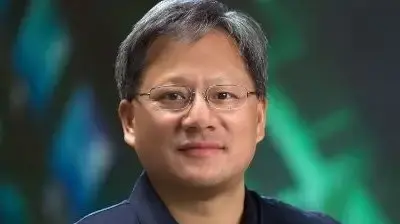Melanie Perkins, CEO of Canva.CANVA.
At 20, Melanie Perkins (36, Perth, Australia), taught graphic design at her university and aspired to make the tools to do so somewhat simpler. In 2008, there were only complicated programs, which required skills that almost no one had. Thinking of solving a small problem, she started, in the living room of her mother's house and with her then-boyfriend – now husband – Cliff Obrecht, an online and collaborative yearbook design company that was very successful in Australia. But his dream was yet to be fulfilled. It took more than a hundred "no's" from Silicon Valley investors until it took the big leap in 2013, when it got the capital to launch Canva. A decade later, 130 million people use its technology every month to make social media posts, birthday cards, resumes, edit photos and videos or create a website... A list that continues to grow within the world's most popular free all-in-one graphic design platform. The latest addition is the integration of the Flourish data visualization tool.
With more than 15,000 million designs produced from 190 countries, the company known as the golden child of Australia and with a strong presence in America, wants to consolidate in Europe. 16% of its users are on the continent and they plan to double this figure in the coming years. Canva has not been able to escape the economic recession that affected technology companies last year – it has lost 44% of market value – and, nevertheless, it has resisted the wave of massive layoffs that companies such as Meta, PayPal or the Spanish Glovo suffered. "We have been profitable and continue to grow rapidly. We have made sure that we have a free product and a paid but affordable one. As the macroeconomic climate has changed, people have turned to Canva. This has allowed us to continue investing in our team and make it grow in a very conscious way over the years," says Melanie Perkins to EL PAÍS in the newly opened office in London.
Perkins is, in many ways, the exception. First because she is one of the few women to lead a technology company. Second because this company has a market valuation of about 24,000 million euros, according to the venture capital firm Blackbird. And besides, he has achieved it before the age of 35. Until last year she was also the second richest woman in her country and has pledged to donate her fortune. Although many analysts attribute Canva's success to her leadership, she doesn't usually blame it on herself, nor does she like to talk about gender. When asked if she has been underestimated for being a woman, she nods her head, but resists uttering the word "yes." He prefers to answer questions in the plural and give credit to the team, the experience, the exciting way they do business and a long-term strategic vision. "We've been investing in artificial intelligence for several years," he says.
Question. Canva was already betting on artificial intelligence (AI) before the boom. Had you seen this impact coming in the creative sector?
Answer. Our big goal is to allow people to have an idea, turn it into a design and have no problems between those two points. This has been our mission for the past decade. Now we can integrate all these different things into one platform and make it accessible to everyone. AI, obviously, has been a very important part for us for many years. For example, to remove the background of a photo with a click, which has been used 1.800 billion times worldwide. Being able to use more of the world's best technology, which is rapidly accelerating and integrating, opens doors to good results.
"We've received a lot of rejection. I can't attribute it to a specific thing [like being a woman], but I didn't really fit the profile."
Q. Many of the content creators or designers are frightened with the speed at which generative artificial intelligence is being installed. What would you say to them?
A. One thing we had in our investor presentations over ten years ago was that, with new technologies, the industry has transformed every few decades. That's been going on forever. And just as typewriters, typesetting, and copy-and-paste appeared, as desktop publishing and desktop computers were born, desktop publishing emerged. And then, with the Internet, a new way of creating was born. Now, with artificial intelligence, we enter another era. Every time technology arrives, we have to adapt. We have to learn to navigate it, use it to help us achieve our goals. That's why I think it's important to try to embrace the latest technology and ensure that it becomes part of our workflow, that allows us to be more productive and gives us more power.
Q. Is the AI revolution similar to the previous ones?
A. Yes. And we must continue to embrace the latest technology to remain able to empower our workforce.
Q. Has the arrival of ChatGPT affected Canva's plans?
A. The pace of acceleration of the industry has been spectacular, but it has followed this trajectory for a while. So if we look back, it's been exciting to see that pace in the AI spaces, and generative AI. And for us, it just allows us to give more power to our community.
Q. Where do you stand on regulation?
A. In our approach we have been careful and cautious, and, in fact, too cautious. We have a trusted and confident team and have made sure that topics such as politics, medicine and other areas cannot be addressed within Canva as far as Magic Write [command content generation tool] is concerned. There are many things to discover at this time and that still remain to be resolved. In a way, we avoid those things within our product. Other companies are taking the first steps in that area, but we want to make sure that doesn't happen at Canva.
I like to believe that most people want to live on a planet where everyone has access to basic human rights and access to health care.
Q. You have shown yourself to do business with passion and a human touch. How can you not lose that when a company like yours increases in size?
A. I feel that along the journey, there is always a fork in the road: do something that feels authentic or do something just like another company. The more we bring our passion, our values and things that seem authentic, the better it will be. We've had our little road. Was there a bit of nonsense? Yes Was it peculiar? Yes. And it was fun. The more we do it as a team, the more we will dream together and then make it come true.
Q. Is it difficult to maintain authenticity when thousands of employees and their families depend on the company?
A. It is essential to put people first. When you look at big numbers, you can get lost in them. For me, product-wise, I always reflect on whether they are good enough for my family and friends. If it's not good enough for them, it won't be good enough for anyone. In addition, we want to create a company in which we want to work. That's why it's also been very important to try to make sure that every decision we make is in line with that.
Q. As a woman, have you ever felt that your abilities have been underestimated?
A. We have received a lot of rejection. I can't attribute it to a specific thing, but I didn't really fit the profile.
Q. Is it harder for women to succeed in the tech world?
A. The rejection was important to me, because it helped me feel very, very confident about what I wanted to do and convinced me a lot of our vision. Having our first company, founded with our own resources, was fundamental because it meant that we would have to be profitable. We put ourselves in all roles, marketing, sales or customer service. Going through that whole process was extraordinarily valuable.
Q. Have you thought it would have been easier if you weren't a woman?
A. Some investors may have looked at entrepreneurs of the past and thought about the profile that entrepreneur should have. And I think Canva's success has changed what that means. What a company founder should look like, where he should come from, or what his background is. I hope that the boxes in which we did not fit have been reduced.
Q. What is your advice for girls and women who want to be part of the tech world?
A. It's important to find a problem that you care about passionately. We always dream of the future we want to exist and we work very hard to achieve it. It is important on a personal, team, company level, even country. The basic formula of the dream that can become your existence is vital and I think that many people do not carry it out.
Q. With the integration of increasingly powerful artificial systems, are you afraid of losing the human perspective?
A. I like to believe that all people, at least the majority, want to live on a planet where everyone has access to basic human rights, can afford to eat, and can afford to have a roof over their heads and access to health care. That is the future I want to work to build.
You can follow EL PAÍS Tecnología on Facebook and Twitter or sign up here to receive our weekly newsletter.
Subscribe to continue reading
Read without limits
Read more
I'm already a subscriber

/cloudfront-eu-central-1.images.arcpublishing.com/prisa/3G7OE5V5BFAHFAOC3SFSUATH3I.jpg)







